National Animal Interest Alliance 2012 Conference Recap
By: Kerrin Winter-Churchill Date: 12/13/2012 Category: | From the Offices of NAIA |
Brave New World, the 2012 National Animal Interest Alliance conference in Redondo Beach, California was a powerhouse event featuring an impressive panel of leading experts from a multitude of animal and animal-related industries, all assembled at the Crowne Plaza Hotel on November 10th and 11th to discuss the emerging field of animal law, agriculture and government regulations, human nutrition, private property rights, the importation of "homeless" pets from third world countries, the battle for policy control in the farming and poultry business, promoting our unique expertise to the media, the circus and its commitment to the Asian elephant, why ranchers are worried about an "endangered" worm, wild horses and federal lands, and much more.
"This event is growing each year," said NAIA Founder and Chairman Patti Strand, "these are world class conferences with the best speakers possible on virtually every subject that anyone with animals should be interested in."
Who and What is the NAIA?
For those who may not know, the National Animal Interest Alliance is an association of business, agricultural, scientific, and recreational interests dedicated to promoting animal welfare, supporting responsible animal use and strengthening the bond between humans and animals. NAIA's members are pet owners, dog and cat clubs, obedience clubs and rescue groups as well as breeders, trainers, veterinarians, research scientists, farmers, fishermen, hunters and wildlife biologists. The membership roster of NAIA includes some of America's most respected animal professionals, advocates and enthusiasts.
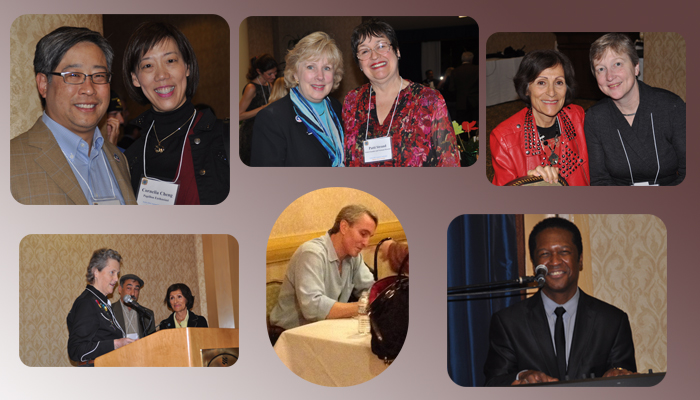
Animal People Founders, Animal People Members, an Animal People Board
The NAIA board members are volunteers from a wide variety of animal fields, including dog and cat associations and sports, animal agriculture, rodeo, animal science, veterinary medicine, wildlife management and hunting associations, entertainment and education. They are distinguished and respected members of their respective communities and serve without compensation in support of NAIA’s mission and goals.
Acting as emcee for this event was AKC Bouvier des Flandres Breeder of Merit and NAIA board member Patte Klecan, who opened the conference with a few comments that the many dog breeders and exhibitors in the audience could relate to. "I joined the NAIA in 2004 when I began recognizing animal extremism. I knew I needed to do something to help spread the truth about what we crazy dog people do for the sake of our dogs. The National Animal Interest Alliance is based in truth, not sensational photographs and emotion-invoking slogans. Over the years, NAIA has endured attacks from animal rights extremists and even from some within our very own dog community. I want to tell you that if you're picking out a group to join, the NAIA is not the flashy show dog in the litter but the really good one that you want to take home. The NAIA has grown to be the leader in animal issues and is dedicated to preserving our purebred dogs." The crowd reacted to this sentiment with great applause and Klecan waited for silence to return. When it did, she introduced visionary Founder of the NAIA, Patti Strand and the entire audience leapt from their seats to give a lively, standing ovation.
When the audience quieted, Klecan set the stage for the two-day event by dedicating the conference to all of those "real life heroes who have sacrificed much to ensure we have good products not just for America but for the world. Even though their jobs are made a little harder each year by the ever-over reaching onslaught of government regulations."
YouTube Proofing Your Life
Popular agricultural journalist Andy Vance who writes for Feedstuffs, the weekly newspaper of agribusiness, spoke of our American culture and how it’s changing. Using himself as an example, Vance, who is a former Shorthorn Cattle breeder and a recent fancier of Norwegian Elkhounds said, "I grew up on a working farm raising cattle. Now I am married living in the suburbs, raising grass, puppies and a baby." According to Vance, the average American is very interested in food but knows little about where it comes from. "People today like food but are "squishy about how a cow goes from the farm to the plate." The general consumer may love steak but will not be comfortable with cows standing in a muddy yard. They may not realize that mud is just a part of the average cow's life. Suggesting that we take a serious look at our own animal facilities, Vance warned that we're living in the age of small, easy to hide, digital recorders, so it is wise to "YouTube Proof" your animal facilities. "Remember, we are animal people and live with mud and dog hair. But someone on the outside? They may not understand. "If you wouldn't want a 24 hour webcam in your kennel, barn or pasture, then you're not doing something right," said Vance. "Take a step back and evaluate your animal facilities. This is the price we pay for living the good life with animals in the 21st century."
Temple Grandin and Real Stuff
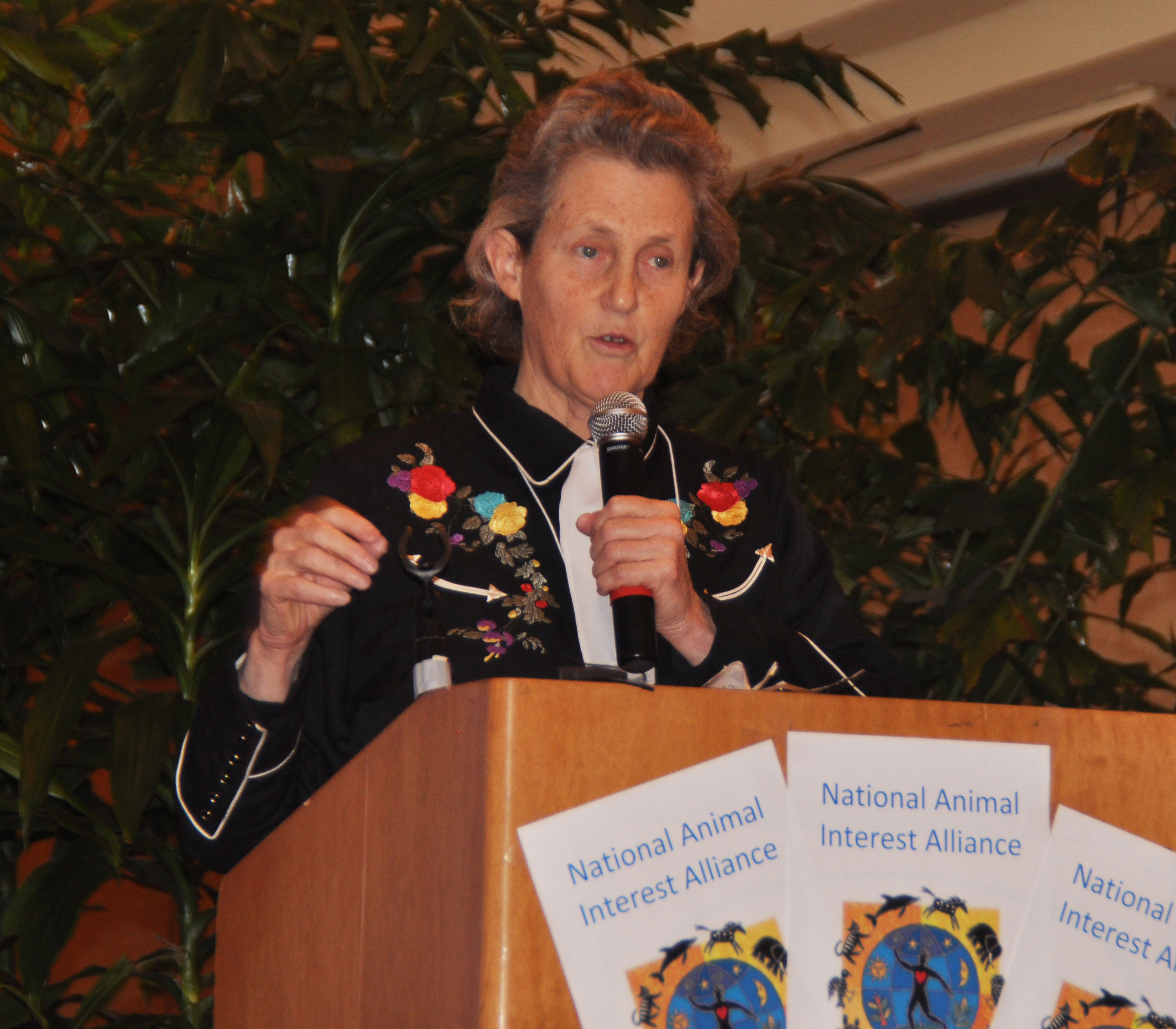 Dr. Temple Grandin Dr. Temple Grandin |
Keynote speaker at this year's event was Dr. Temple Grandin, PhD, whose' groundbreaking book, Animals in Translation, drew on her own experience with autism as well as her unique experiences as an animal scientist. With six books and a biographical feature film behind her, Grandin was a big star in the eyes of the NAIA audience, many of whom she embraced as peers. Direct and down to earth, Grandin touched on DNA coding, and what it means to our breeding programs, animal rights activism and marketing an animal-related business in the era of social networking, and the changes in our American culture, "Young people don't know how to cook, sew, ride a horse or cut wood. We need to get back to real stuff. You can help by exposing kids to something you do. What are chores to you, a city kid might find fascinating. Invite city kids to your farm or bring an animal to their school. They won't know if they like animals or not if the animal people don't show them the ropes."
Grandin skyrocketed to fame through the not so glamorous business of redesigning slaughter houses, making them more humane. Her video series on YouTube shows without question how animals can be slaughtered without fear or pain. Even though she's the guru of animal-think, she has detractors. Don't we all? In the spirit of advice, Grandin explains "I have a rule about who gets to comment on my videos. If they are simply against what I do, that's okay, I let their voices stand. There's no point in arguing with your detractors. It’s a free country. They're allowed to have an opinion. But if they can't type without using foul language, I call those, my "Nasty Boys" and I delete them very quickly." Touching on animal rights extremism's, Grandin says, we have over 350, million people in the United States. They've got to eat. As a nation, we've got to produce the food to feed our people but we can do it in a way that is humane and that while they are alive on this earth, the animals have a life worth living. Sure, some of the population is not going to like that we use animals but arguing with them just ends up reflecting badly on you. Rise above them. Do a good job and sell yourself. The best advice I can give you is to be positive and share your life."
An Expert's Expert
This year's conference was so jam-packed with good information guest speakers were loath to leave after their scheduled presentations. Many stuck around for the entire conference, cross-pollinating with other speakers as well as an incredibly diverse audience of leading experts in myriad of animal related fields. Says Strand, "our audience is always made up of a "veritable who's who of leadership in many of the animal hobbies and professions." Each presentation concluded with a lively question and answer period in which lecturers and audience shared and benefited from each others'unique wisdom.
When Dr. Terry T. Warren, Chief Executive Officer and General Counsel of the AKC Canine Health Foundation told the story of how with the help of the American Kennel Club, the CHF was able to raise 2.8 million dollars for the eradication of disease in purebred dogs with the mapping of the Canine Genome, a very direct Dr. Grandin grabbed the arm of the nearest dog person, angrily exclaiming the AKC's inability to effectively promote its own program. "I had no idea this level of purebred dog research was being funded through the American Kennel Club. I have actually trashed the AKC for promoting unhealthy purebred dogs because I didn't know." Borrowing the dog person's Iphone, Temple swiftly went to YouTube comparing hits between the CHF and her video on pig stunning. "I have 2.5 million hits while the CHF has only 800. That's pitiful. The AKC needs to do a better job of blowing its horn. They're not using social media correctly if someone like me doesn't know about this stuff." Harsh words? Yes. Of course. But Grandin spoke them out of genuine concern. The AKC is the very best canine registry in the world and yet, only a small fraction of dog lovers really knows the depth of good the AKC is doing. That's got to change.
Does this Steak Make Me Look Fat?
While the Grandin lectured on Day 2 of the conference, Day 1's featured speaker was the scientist and bestselling author Dr. Gary Taubes, whose breakthrough book, "Why We Get Fat" discusses the science of obesity in terms that a lay-person can understand. According to Taubes, "The popular hypothesis known as the 'Energy Balance Disorder' (defined as: obesity is caused by eating more calories than you expend in exercise) "is based on bad science." Equipped with a graphic-intensive, PowerPoint presentation, Taubes walked us through his research, beginning with a scientist who "got it right" way back in the 1920's. Bringing us forward to modern times, Taubes suggests that "Diabetes and Obesity are just opposite sides of the same coin. Eliminate Obesity and you will almost always eliminate Diabetes." Unfortunately, the US recommended diet, in Taube’s opinion, is also based on bad science. "The consumption of red meat and fat doesn't raise your insulin levels. Sugar does. Quit eating sugar and carbohydrates - both of which are converted and stored in your body as fat and watch the pounds melt away." With cattle ranchers and steak lovers in the house, Taubes' lecture concluded with a hearty applause while many hands flew up, keeping the author at the podium fielding questions while his book signing line grew long at the back of the room.
Wild Horses, an Independent Study
Every horse lover has an opinion about the wild horse roundups on U.S. public lands but very few of us truly understand the issue in its entirety and the truths are almost always obscured by deep emotion. Putting things into proper perspective for the NAIA audience was Dr. Betsy Greene, a Professor of Animal Science and Extension Equine specialist in the Animal Science Department at the University of Vermont.
In 2010, Green was one of four equine experts, chosen to participate in the American Horse Protection Association Independent Observer Pilot Program. Her role was to document the humane care and handling of the animals while they were being removed from the range by Bureau of Land Management contractors and personnel.
Standing at the podium, Dr. Greene presented her own video of her time spent in Nevada's wild horse country. In her video presentation, we witnessed the truth - in times of drought, an over-abundance of wild horses die of dehydration and lack of food.
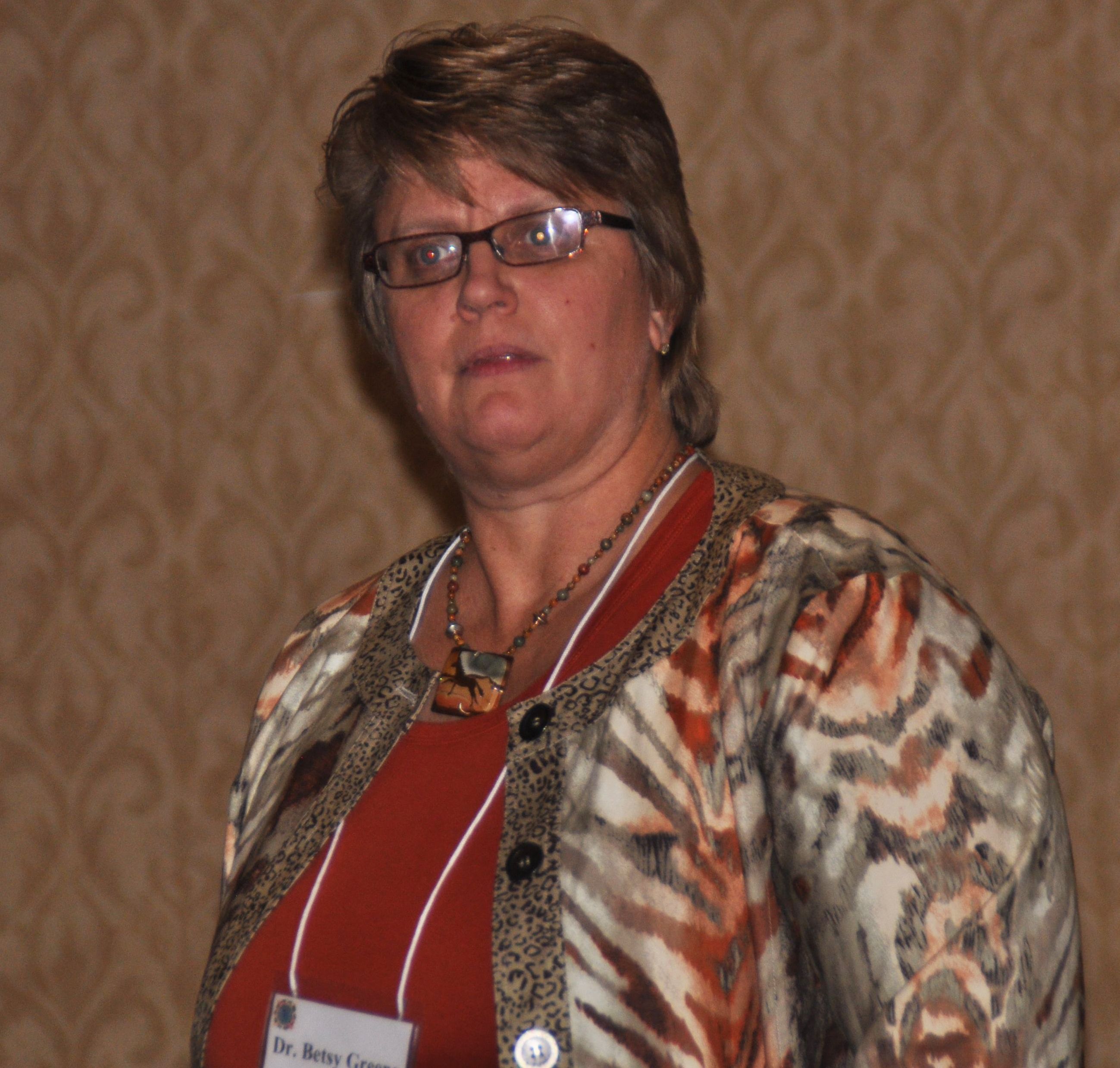 Equine Expert Dr. Betsy Greene Equine Expert Dr. Betsy Greene |
Through Dr. Green's video, we watched how the surplus numbers of horses are humanely rounded with the aid of helicopters which are used to guide the horses through long chutes of rope fencing. The helicopters fly low but the horses in the video are jogging, and cantering, not extend-trotting and galloping. Their ears are forward, no one is "snaking," kicking or biting and they aren't bunched together. If you're a horse person, you will recognize these signs as those of a relaxed horse, not stressed. When they are almost to the enclosure, a trained gelding is released to head the herd into the first enclosure. In Green's video, we horse lovers, saw young, wild foals so thirsty they pushed past their natural fear of man for the chance to drink, deeply from hand held buckets of fresh water. We saw horses so thin, one could count every bone in their body and learned how horse owners and breeders compete with the federal government over available hay to feed the wild horses to prevent starvation. Clearly, Dr. Green's independent findings are in direct contrast to what the animal rights activists portray but the bottom line is, when there is not enough water and grass to feed a herd of wild horses, they dehydrate and starve to death. There are fates worse than death in this world and Greene's video of deceased horses and foals laying in a wasteland of dry, cracked earth, reminds us that nature is a cruel mistress. The life of a wild horse in an overpopulated region can be very harsh, indeed.
Protecting Our Private Property Rights
With Dr.Greene's eyewitness presentation on wild horses, we should feel more comfortable with their management through the US's Bureau of Land Management and yet, every cattle rancher knows how government regulation can over-step boundaries and interfere with private property. Karen Budd-Falen is a 5th generation Wyoming cattle rancher and a rare expert on the U.S. constitution. Her riveting lecture had the audience at the edge of their chairs because our private property rights extend to those who own animals. Quoting Budd-Fallen, "Sadly, the US Constitution isn't taught in school so most local, state and federal government officials have no understanding of private property laws."
To emphasize how to view the US constitution, Budd-Falen said, "The US Constitution does not give you rights. God gives you rights. The Constitution is the document that stops government from taking away your rights." So? What does that mean to you and me? Think about those stories we've heard about the dog breeder whose neighbor calls and complains and the next thing he knows, an animal control officer is standing on his property to confiscate the dogs. Says Budd-Falen, "If that happens - if a State or Federal Government officials walk onto your property, ask them "by what statute and regulation are you trying to govern me? If they can't produce a document proving that you are operating in violation of the United States Constitution, you are to say, "you are trespassing on private property and need to leave." In Budd-Falen's ceaseless research, she discovered that "Webster created the dictionary so lawyers could not change the meaning of a word so that the constitution could not be changed. She said, "If you look at Federalist papers and the purpose of the Bill of Rights, the bottom line is the rights of private property -ownership of land, acres, guns, dogs.. we have got to understand our constitution or we're going to lose not just our animals, but our entire country."
Animal Loving Attorneys Please Stand Up
 Animal Law Attorney Phil Goldberg Animal Law Attorney Phil Goldberg |
Dovetailing Budd-Fallen's lecture on private property rights was the forward thinking lecture presented by attorney Phil Goldberg of Shook, Hardy & Bacon, LLP's Public Policy Group in Washington D.C. "We are in the era of Animal Law," said Goldberg. If you thought that only animal rights activists focus on animal issues, you are living in the past. According to Goldberg, in 1977 the first Animal Law program was instituted. Now, there are 150 Animal Law programs and many Animal Law Sections and Committees. Because they exist, Goldberg urges all lawyers with a hobby or professional interest in animals to join these Sections and Committees. It doesn't matter if your area of expertise is in a different field. You, as an animal person and an attorney should stand up for animals. "If you exclude yourself because you're thinking that these Committees are only for the animal rights activist, then you're going to be left out of the decision making process," warns Goldberg, who also suggests that you take your area of animal expertise and become a guest lecturer at a law school. "If you're articulate and have something to say, the law students will enjoy your lecture." It’s time for science-based, logical animal thinkers to lead the way for animal lovers of today and tomorrow.
Kennel Inspections - the AKC Way
On hand to spread the good news about the American Kennel Club Inspections Program was Margaret Poindexter, J.D. The lecture was eye opening for most of us - even for those of us who've been involved in Dogs for a very long time. Gone are the days when a commercial breeder had to fear an onsite inspection of their kennels. Not because inspections no longer exist, "since the year 2000, we've done over 55,000 inspections," said Poindexter. The difference between the "old days" and the new is the approach and attitude. Said Poindexter, the updated program is “meant as a basis for helping individuals ensure that facilities are maintained and care practices are performed in a safe, humane and responsible manner.”
When an inspector walks into a facility, he or she will consider the number of dogs housed in the building structure, ventilation, lighting, waste removal, sanitation, food and water receptacles, bedding, condition of dogs - including their muscle tone, access to exercise, parasites, medical problems and whether or not the kennel is in compliance with local, state and federal regulations. Surprising to many in the audience, the AKC Inspectors also consider whether or not the dogs and puppies are receiving the socialization appropriate to their age. They will also question the breeder to learn if they are prepared for an emergency or disaster and will consider if their staff on hand is adequate for the number of animals housed at the location. Initially launched in 1991, the AKC's "Care and Conditions of Dogs Policy," was revamped just this year. No longer thought of as a "punishment" oriented program," Today, the AKC's goal is to assist customers in identifying areas of deficiency; educate breeders about AKC expectations of care and conditions, dog identification and record keeping; and assist customers to come into compliance.
Inspecting Kennels throughout the United States is an expensive endeavor for the American Kennel Club but the AKC is a brand, representing the best registry in the entire world. Annually, the AKC spends $1.5 million on the inspection program.
Disaster Relief and the Federal Government
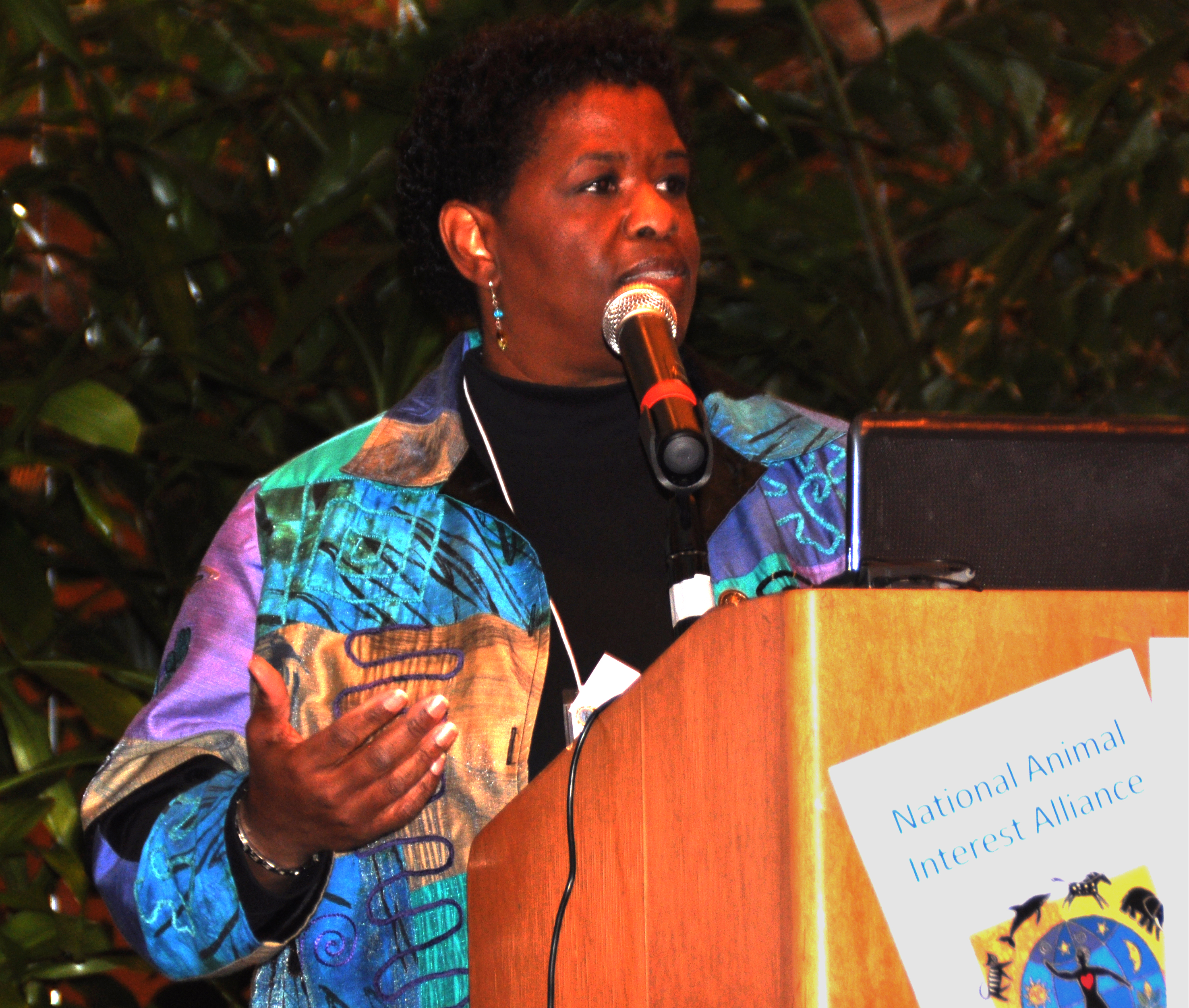 Dr. Kay Carter-Corker Dr. Kay Carter-Corker |
When hurricane Sandy hit the East coast, many animal lovers worried about stranded pets. Unlike Hurricane Katrina, there was no national call to "come and help the animal victims of Hurricane Sandy." According to guest speaker, Dr. Kay Carter-Corker, Assistant Deputy Administrator for the APHIS-Animal Care, "we don't advise animal rescuers (no matter how experienced they are) to travel out of their area to assist in another region's animal rescue. These days, if they come, they'll be turned away." According to Carter-Corker, when a disaster hits a region, the APHIS office will contact the chief veterinarian for that area and rescue efforts will begin from inside, spiraling out. Certified rescue workers from that region will be the first to be tapped and as needed, the U.S. offices will supply the appropriate groups to help. When asked why the Humane Society of the United States is able to get into areas where other rescue groups would be turned away, she said it’s all about "compliance," explaining that as a government employee, she is not allowed to take up sides. "For instance," Carter-Corker says, "I can't judge one person as a dog breeder and another as an animal rights activist. I have to work by the book. If the state veterinarian has their volunteers certified and ready to deploy, if they comply with the APHIS regulations, it's the state's chief vet who makes that call." Regarding rescue volunteering, Carter-Corker said, "if you truly enjoy rescue work on that level, I would recommend finding a civic organization in the area where you live that is training and certifying disaster relief volunteers. Then, you'll be ready to deploy when a disaster finds your neighborhood or state."
The Federal Government and 3rd World "Homeless Pets"
According to Patti Strand, the practice of moving dogs from areas of high supply to humane societies and rescue groups in areas where there are not enough dogs to meet demand is growing, even reaching into third world countries to keep US supplies high. According to Strand, NAIA's Shelter Project shows a steady decline in the number of dogs entering most US Shelters. " According to Strand, animal shelters in many large Northern cities are running out of little dogs so they are importing from distant places including offshore territories and third world countries where there may be little or no industry standards for vaccines or health. A few dogs have actually developed rabies after being imported. Importing dogs from outside of the United States might make warm-fuzzy headlines but when animal activists continue to blame responsible breeders in America for the mythical "animal overpopulation" while importing dogs from beyond the borders, they're playing dirty pool. Many in the NAIA audience wanted to know if the federal government can step in and stop this misleading practice. Dr. Carter-Corker responded by reminding us that as a government employee, she must be blind to animal rights vs. animal breeders. "My concerns are 1.) is a dog at least 6 months of age? 2.) is it in good health, 3.) is the animal appropriately vaccinated? Dr. Kay Carter-Corker says that when animals come in from different parts of the world, it can put a lot of pressure on indigenous species but of course, foreign dogs are still just dogs. What they do have to be careful of is secondary parasites not native to this country when the dogs are brought over. "Besides Rabies, Distemper and Parvo, our office is very concerned with foreign pet parasites such a screw worms and Trichinosis which are always on the radar at the APHIS-Animal Care inspection stations."
Why the Circus Came to Town
In the not so distant past, when the circus came to town, the animal performers would unload at the train station and promenade right through Main Street, U.S.A. In those glorious days of old, the air rang with laughter from excited crowds of circus fans cheering the parade of horses, ponies and llamas as they pranced and trotted in the thunderous footsteps of the mighty Asian Elephants leading the way to The Greatest Show on Earth.
Fast forward to the year 2013. The Ringling Brothers, Barnum & Bailey Circus still arrives into towns across America by train, but their famous promenade through town is now usually done after dark, after most people are asleep. Circus personnel made this decision soon after the summer of 2012, when animal rights activists in Los Angeles struck circus fans on their heads with protest signs, shouted obscenities at the animal handlers and tried to scare the horses and elephants into a stampede, in a failed attempt to tarnish the circus in the eyes of the media.
Sadly, animal rights activists fighting against the use of elephants in the circus, operate without a moral compass and are wholly ignorant of the leadership role Ringling Brothers has taken towards the care, protection and preservation of Asian elephants worldwide.
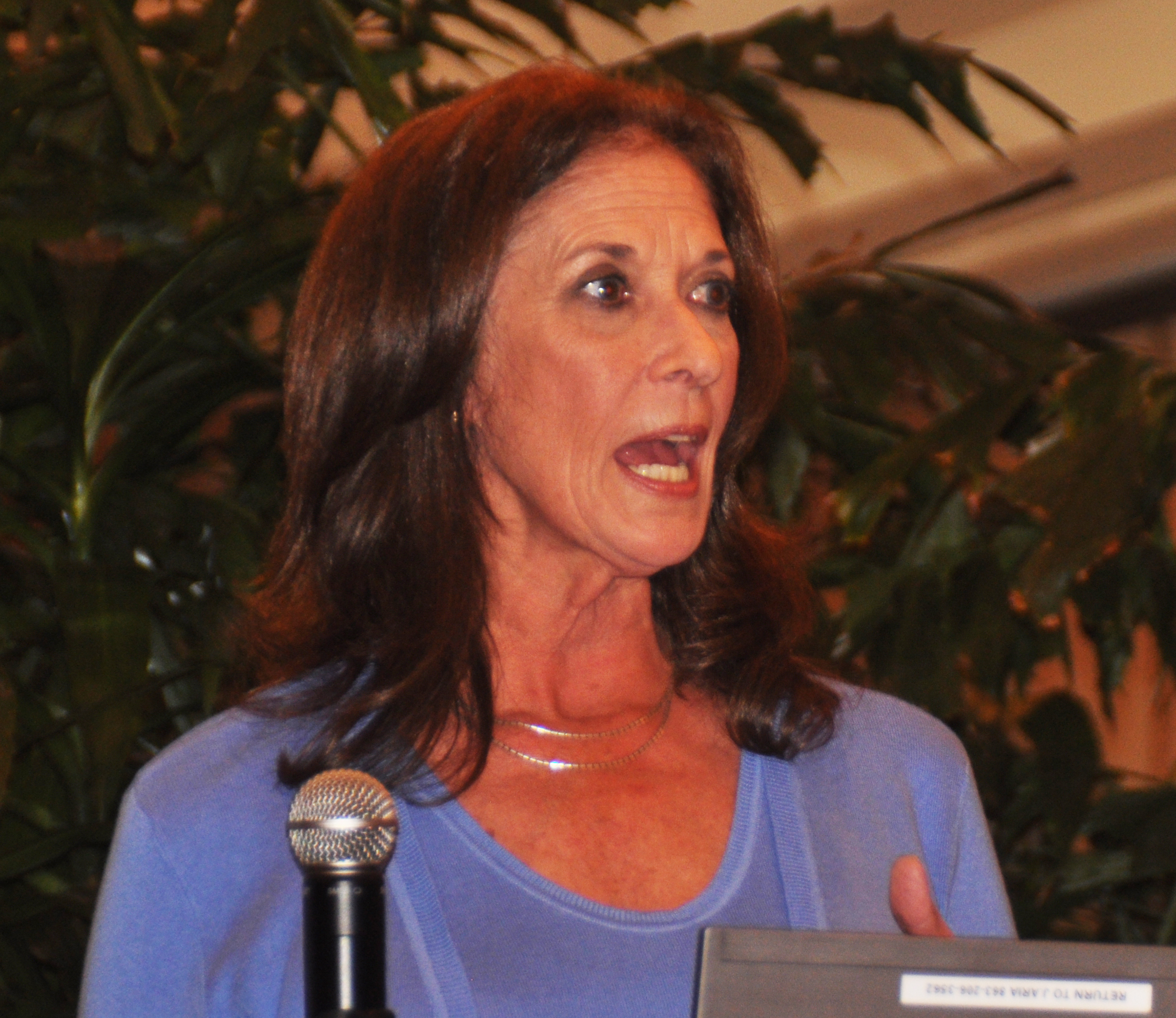 Janice Aria, Director of Animal Stewardship, Ringling Bros. and Barnum & Bailey Circus Janice Aria, Director of Animal Stewardship, Ringling Bros. and Barnum & Bailey Circus |
According to Janice Aria, Director of Animal Stewardship Training at the Ringling Brothers' Center for Elephant Conservation, "The Asian Elephant is one of the most endangered species in the world and Ringling Brothers is deeply committed to preserving them. In fact, a piece of every circus ticket sale goes towards funding our elephant research."
Created in 1995, The Ringling Bros. and Barnum & Bailey Center for Elephant Conservation was created to preserve and protect the species’ well-being. The 200 acre elephant, reproduction center and semen bank is a state of the art facility which shares its semen, technology and knowledge with other elephant facilities throughout the world. So far, 24 baby elephants have been born at the Florida facilities. As a part of its ongoing effort to save the Asian Elephant species, Ringling Brothers funded the first ever census in Sri Lanka to better understand the changing relationship between its native people and the Asian elephant.
With a smile on her lips, Aria told how the Ringling Brothers' "passion for pachyderm" led them to help create the International Elephant Foundation, which sponsors emergency veterinary care, supplies, research scholarships and grants to elephant researchers and trainers around the world. As for Aria herself, she directs the student intern program, teaches training methods to animal handlers and is involved in the care of the largest herd of Asian elephants in the Western Hemisphere. She is responsible for designing and implementing a standardized curriculum of best practices in training, working closely with trainers and their animals to maintain high standards of animal care.
Attending the NAIA event in support of Aria was fellow elephant enthusiast, Kari Johnson, owner of the California based animal talent company, "Have Trunk, Will Travel." Johnson's claim to fame is her Asian elephant, Tai who starred in the 2011 Reese Witherspoon film "Water for Elephants." Johnson's trouble began when the film was released. Set in the 1930's the movie depicted out-dated methods of training and restraint. "Animal rights activists saw the film and assumed the scenes were real but of course they weren't," said Johnson who also said she "trains, using positive methods and lots and lots of patience. " Of this film, Janice Aria laughed, "It's a movie. It's not real but animal rights activists don't necessarily want to believe that."
The NAIA Serving the People Serving the Animal World
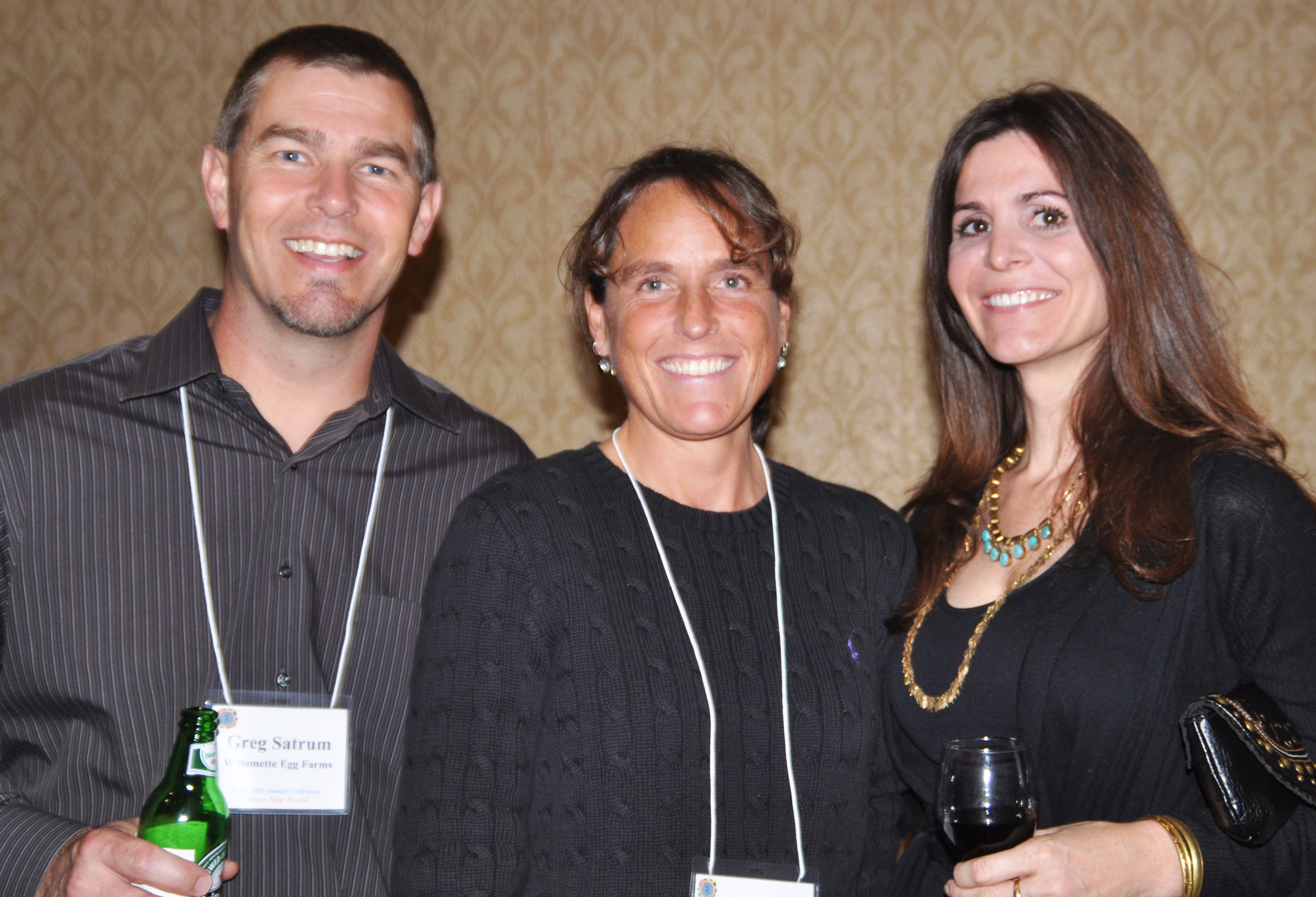 Animal People Animal People |
The 2012 NAIA conference was a dynamic summit for those involved in animal related fields from all walks of life. But it was more than a format for sharing gripes and grievances. This was a problem solving event where ideas, best practices, and suggestions were given (and taken) across the species-aisles. During the two day conference, audience attendees and speakers listened and shared experiences. We learned how to speak proactively to the media, we understand our society better and what it means to our breeding programs, we know how to protect our facilities against self-interested activists who may slander our good reputations, we know what to say to an over-reaching government agency when they appear at our door and more than ever, we understand how the media can manipulate a story to sell "newspapers."
If your life centers around the animal world and you are not a member of the National Animal Interest Alliance, its high-time you joined. Kennel clubs, equine societies, cattle organizations, et al, now is the time to come together for the greater good of all. Join the NAIA. Not only is there protection in numbers, there is a sense of peace in knowing that you are not alone and that your problems are solvable. As an advocate and lobbyist fighting for the rights of animal owners, whether they are hobbyist or people earning their living in the animal world, the National Animal Interest Alliance has worked hard to become the recognized voice of authority, where common sense, hard science and reason are King. In the words of a wise old cowboy attending this event, "Hey, we gotta stick together or we're all gonna fall." Please add power to our collective voice by joining the NAIA today. The National Animal Interest Alliance can be found online at www.naiaonline.org, visit and "Like" our NAIA Facebook Fan Page, and join our ongoing discussion on Twitter.
7/8/2013: This article is being featured once again as we gear up for the upcoming NAIA conference, The Conversation Begins with You, in Orlando, Florida, November 2-3, 2013.
About The Author
All Authors Of This Article: | Kerrin Winter-Churchill |











